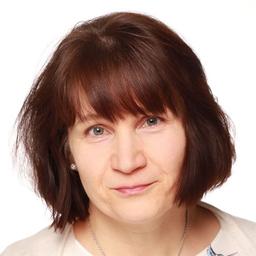
CITER’s (Center for Innovation and Technology Research) research covers the interrelationships, dynamics and evolutionary trends among technology, innovations and different societal actors and structures. Our research group’s activities concentrate on developing competitiveness in the following focus areas – business and innovation ecosystems, modelling, technology business (commercialization and business model development) and foresight of technological evolution & technology strategy and innovation management.
Research focus and goals
We specialize in technology-driven sustainable business research. Our area of expertise is in developing and producing solutions and knowledge for the development of competitiveness in a technology-centric, everchanging operating environment. We have currently several circular economy research projects, in which we study e.g. customer value, digitalization, value creation, organization, living labs, coopetition, startups, commercialization and business ecosystems. In addition, we study patient experience in the healthcare industry and artificial intelligence solutions.
Our goal is to be on the cutting edge of our research field in producing new, fundamental scientific knowledge that resonates strongly with the real world, providing practical applications for pragmatists. We work actively for disseminating our research results openly and for creating a strong societal impact through our work.
Impact
Research group's projects:
ReCreate (2021–2025) – ReCreate is an EU funded project focused on deconstruction and reuse of precast concrete elements. This international project aims to discover how used concrete elements can be deconstructed without damaging them to be reused in new buildings – and turn the process into a profitable business. The concept of ReCreate is to work with industry partners and buildings owners in four pilots (located in DE, FI, SE, NL) on the different aspects of deconstruction and reuse over the whole value chain in order to demonstrate the technical feasibility and potential profitability of reuse. The four-year project has received €12.5 million of funding under the EU’s Horizon 2020 programme.
Contact persons: Leena Aarikka-Stenroos, leena.aarikka-stenroos [at] tuni.fi; Linnea Harala, linnea.harala [at] tuni.fi
BIO-CCU (2022-2024) - BIO-CCU is a Business Finland funded co-innovation project focusing on sustainable value creation of the carbon dioxide emission capturing and its circularity. The project targets to support markets development and to explore emerging value chains of industrial processes such as capturing CO2 emission, its circulation and further utilization. CITER group studies carbon capturing and storage business models and how value is created when CO2 emission is transformed into a feedstock or raw materials. This project directly contributes to decarbonization of the society and industrial processes to mitigate anthropogenic effects causing climate change and to circular economy principles implementation across industries.
Contact persons: Leena Aarikka-Stenroos, leena.aarikka-stenroos [at] tuni.fi; Olga Dziubaniuk, olga.dziubaniuk [at] tuni.fi
PRELUDE (2020–2024) – PRELUDE is a Horizon 2020 project, where researchers study buildings’ energy efficiency, self-consumption of renewable energy sources, and improvement of healthy indoor conditions. The project members develop an optimisaton system based on predictions on energy consumption and building indoor conditions data. It enables better retrofitting investments, improvements of end-users’ demand patterns, and optimisation of building automation systems. The unit of industrial engineering and management studies end-users’ transformation to active energy prosumers and new business models that emerge in the smart building ecosystem.
Contact person: Jussi Valta, jussi.valta [at] tuni.fi
CICAT2025 (2018–2023) – The project aims to accelerate the transition from linear economy to a sustainable circular economy. The project supports Finland’s goal of being the leading country in the circular economy by 2025 by identifying the factors that promote and accelerate circular economy and by looking for solutions for companies and decision-makers in the transition toward circular economy. In this project, our group studies the innovation and business ecosystems of the circular economy and the digital, technical and business catalysts that promote circular economy. The project is funded by the Strategic Research Council of the Academy of Finland.
Contact persons: Leena Aarikka-Stenroos, leena.aarikka-stenroos [at] tuni.fi; Linnea Harala, linnea.harala [at] tuni.fi
SIE (2021–2022) – The Sustainable Industry Ecosystem (SIE) project aims at supporting the Green and Sustainable Digital Transformation of Finnish Manufacturing SMEs. Project up-scales and coordinates different regional smart specialization strategies, by integrating digital platforms and innovation hubs to serve cross-border large-scale experimentations. Our research group, together with project partners, develops a service model for network of pilot lines, digital platforms, and innovation hubs with transparent and common access policy for realizing green and digital solutions. The project is funded by the Academy of Finland.
Contact person: Sami Rusthollkarhu, sami.rusthollkarhu [at] tuni.fi
UPCE (Profi4) (2018–2022) – The multidisciplinary profiling project Urban Platform for Circular Economy focuses on the utilization of living lab platforms to promote the circular economy in urban centers. Involved in the project from our university are the units of Environmental Technology, Industrial Engineering and Management, Aerosol Physics and Environmental Policy. The special area of research are Hiedanranta living labs and especially the nutrient cycle. Our research team examines the impact and activities of the various stakeholders in living labs in terms of both technology development and implementation, the organization of multi-stakeholder collaboration, and business.
Contact person: Leena Aarikka-Stenroos, leena.aarikka-stenroos [at] tuni.fi
ILPO (2020–2021) – 6Aika: ILPO – Climate positive business parks and value chains project aims to support cities in achieving their ambitious climate goals. The ILPO project involves the value chains of companies and circular economy hubs in joint climate work that requires all actors in society. In the project, our research group studies the economic sustainability of solutions seeking climate-positive synergies and focuses on the value potential of cooperation between ecosystem actors and the business expectations and conditions of individual actors on the ecosystem. The project is funded by the European Regional Development Fund (ERDF).
Contact person: Eeva Pohls, eeva-leena.pohls [at] tuni.fi
ProCemPlus (2019–2021) – The Prosumer Centric Energy Communities – Towards Energy Ecosystems (ProCemPlus) project explores the formation of different energy communities towards business-oriented energy ecosystems. The project is funded by Business Finland and the consortium includes 11 companies. The project forms a holistic view of the impact of different factors on the development of energy communities and microgrids and explores the role of energy communities and microgrids in the future energy ecosystem. Our research team focuses on studying new business models and the role of the customer, as well as identifying challenges related to commercialization.
Contact person: Jussi Valta, jussi.valta [at] tuni.fi
ROBINS (2019–2020) – In the project, sales operations are automated with the help of intelligent robotics, which will enable sales and marketing expertise to be utilized by SMEs and used for promoting international growth and internationalization. The project promotes scalable solutions and models utilizing B2B sales robotics, which together support the transition to an open intelligent marketing ecosystem.
Contact person: Sami Rusthollkarhu, sami.rusthollkarhu [at] tuni.fi
CircVol (2018–2020) – The project “Future circular economy hubs in Finland” seeks solutions how to increase material flow in and facilitate business potential to emerge from circular economy hubs. As a result of diminishing natural resources and the related social demands and the needs of development of new business, circular economy hubs provide relevant platforms for developing circular economy principles in Finland. In Tampere, the project focuses on city district of Hiedenranta. Aim of the project is to find solutions and business opportunities to handle and use zero fibre. The Project involves units of Industrial, Civil and Environmental engineering at Tampere University.
Contact person: Jarmo Uusikartano, jarmo.uusikartano [at] tuni.fi
CircHubs (2017–2019) – CircHubs is 6Aika: Future circular economy hubs in Finland collaborative ERDF project, whose objective is to find new business activities within the circular economy and to support the commercialisation of circular economy innovations in the metropolitan areas of the six biggest Finnish cities. The project provides services and network to support circular economy businesses. The project generates new knowledge about material flows, new business potentials and utilization possibilities in eco-industrial parks and circular economy centers.
Contact person: Jarmo Uusikartano, jarmo.uusikartano [at] tuni.fi
Leader
Members
Contact persons
Leena Aarikka-Stenroos - leena.aarikka-stenroos [at] tuni.fi / +358 503015476
Linnea Harala - linnea.harala [at] tuni.fi





